Dedicating ELL’s Reading Room to Marjorie C. Luesebrink
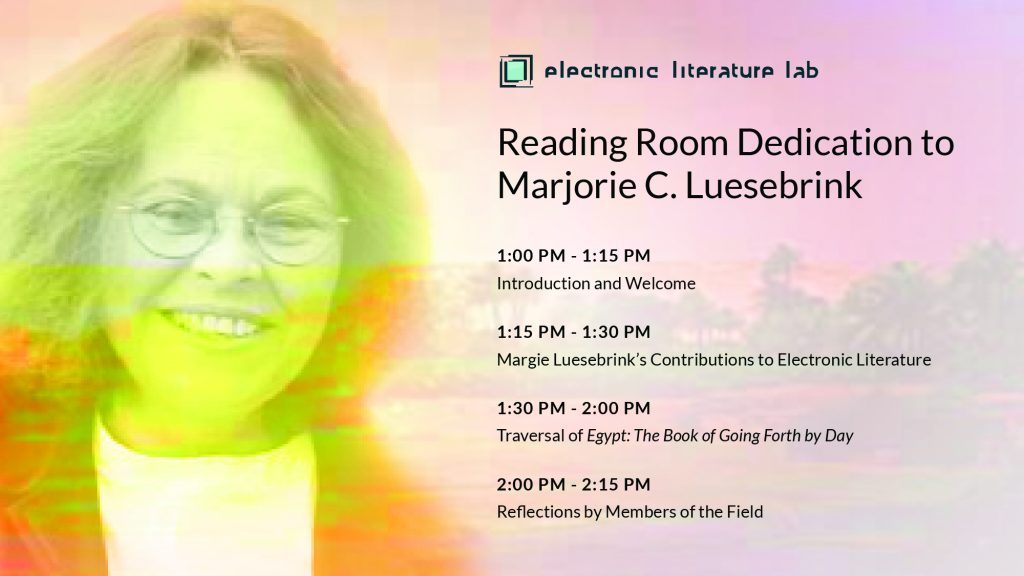
All of us in the Electronic Literature Lab are very excited to be dedicating our Reading Room to Marjorie C. Luesebrink next Wednesday (July 23, 2025). The event starts at 1 p.m. PDT and will be recorded so that it can be accessed on the lab’s Vimeo account. We are flying her frequent collaborator and […]
Love Letters Continued

Love Letters: A Showcase of Ephemera of the Electronic Literature Organization 11-13 July 2025 Scott Library, 2nd Floor Atrium, York University Showcase Website: https://dtc-wsuv.org/projects/love-letters/ Because we are celebrating the 25th Anniversary of the founding of the Electronic Literature Organization (ELO), the theme of ELO’s Conference and Media Arts Festival is “Love Letters to […]
Exhibition at the Scott Library in Toronto

Amidst the 78 Traversals we are doing this summer are the also the two exhibitions we are mounting. The first exhibition is the Jean-Pierre Balpe exhibition in Paris that we worked with our Affiliate Scholar Erika Fulop (University of Toulouse) to create. The second is called “Love Letters: A Showcase of Ephemera of the […]
Treasures
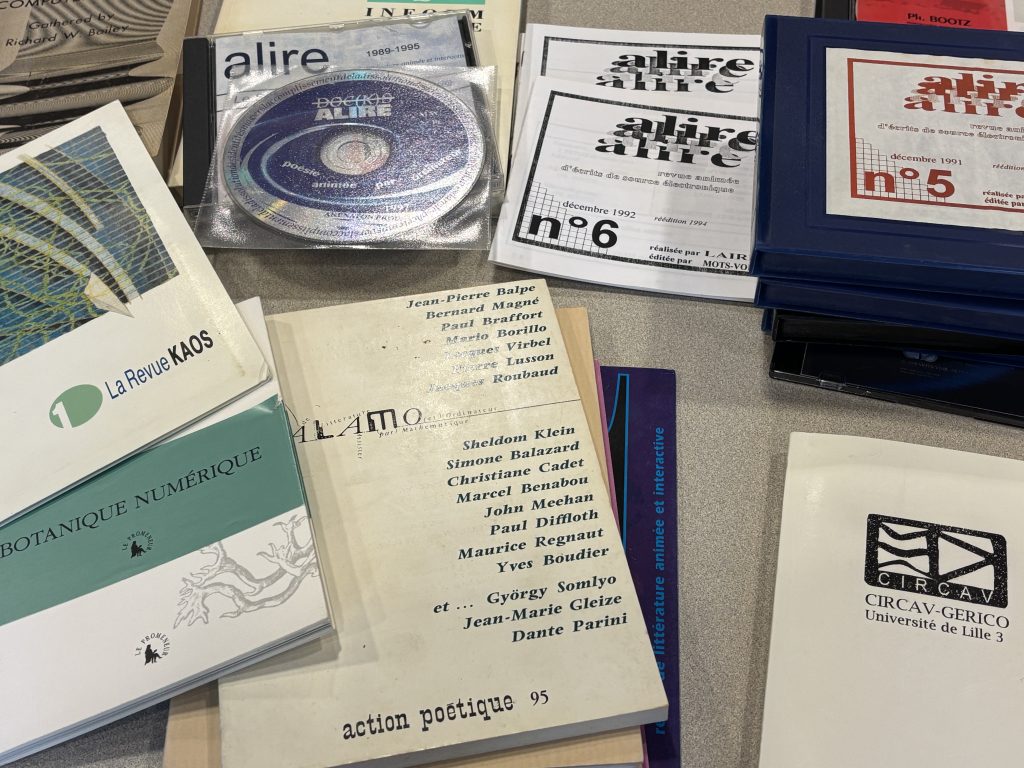
I had mentioned in the BBC article that the lab was missing one computer needed to do our work: a computer that could run Windows 1995 and had a 5.25-inch floppy disk drive. From that news story we received one! A big shout out to John McNamara from Canada who took the time to ship […]
ELL Was Awarded a Society of American Archivists Catalyst Grant

We learned today that we were awarded the Society of American Archivists (SAA) Catalyst grant. The funds will support video recordings of 78 works of born-digital literature, art, and games produced in Shockwave and held in archive at The NEXT (https://the-next.eliterature.org). These video recordings will follow the formal process that Stuart Moulthrop and I pioneered […]
BBC News & Stories Article
When the email popped up in my inbox in March, I was a bit skeptical: the BBC writing to arrange to talk to me about Microsoft in preparation for an article it was doing about the company’s 50th Anniversary? But it was true, Thomas Germain, the journalist, was reaching out to folks who were using […]
Enhancing Immersive Experience at The NEXT’s Viz Space
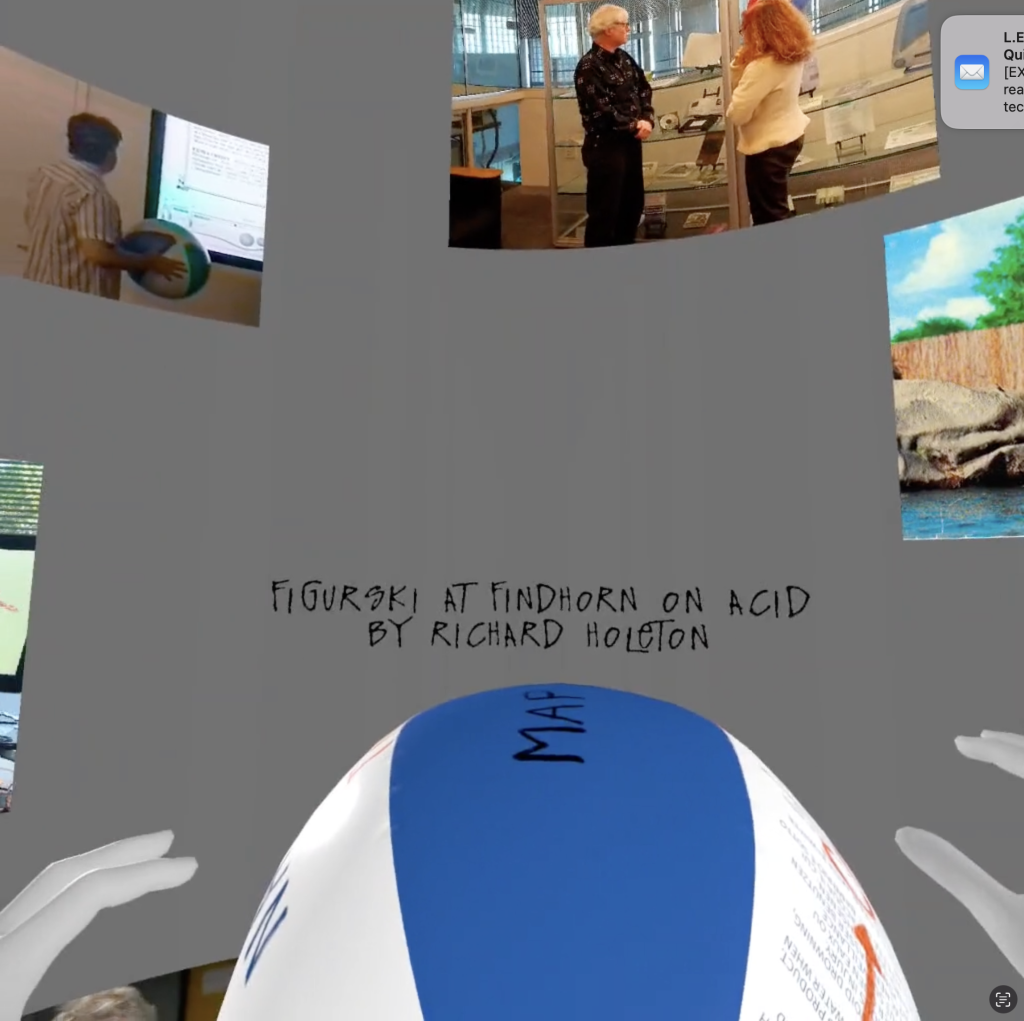
This video clip shows the process the Electronic Literature Lab’s XR Programmer Andrew Thompson is making with making The NEXT’s Visualization space more immersive for visitors. When we first created the Viz space, it was envisioned as way we could make physical artifacts from The NEXT’s collections accessible to the public, remotely. Objects like […]
ELL’s James Lesperance Wins Three Awards!
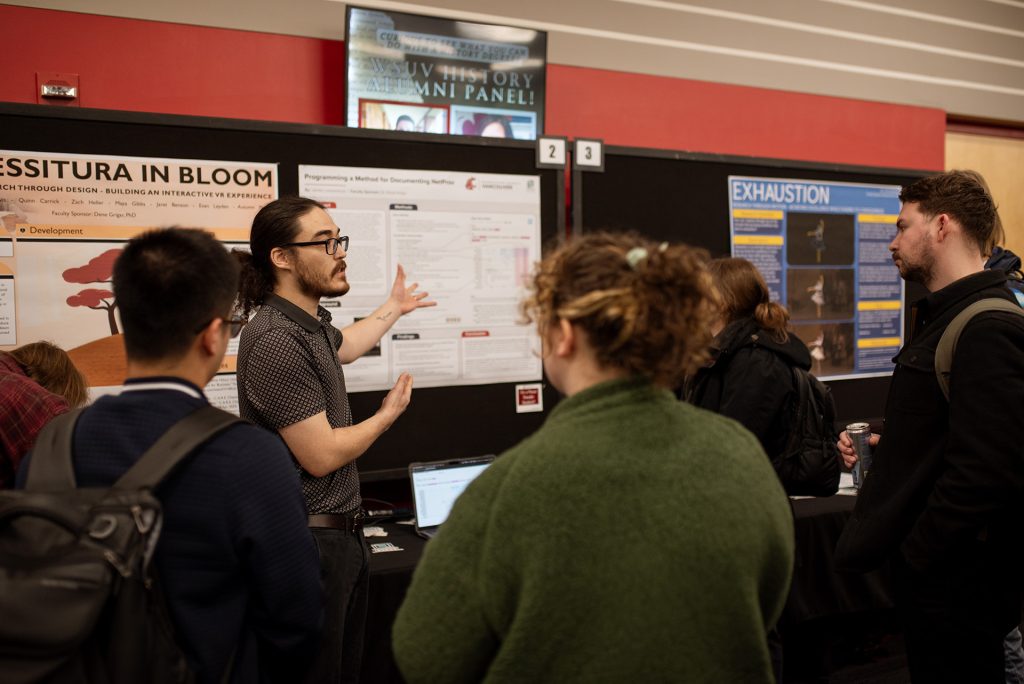
James Lesperance, ELL’s programmer and a recent graduate of the DTC Vancouver department, has won three awards this spring. The first was 2nd place in the Student Undergraduate Research and Creative Activities (SURCA) competition in the category of Art and Design, held on the WSU Pullman campus on March 24, 2025. His project, “Programming a […]
TedXTalk about the VR Integration in The NEXT
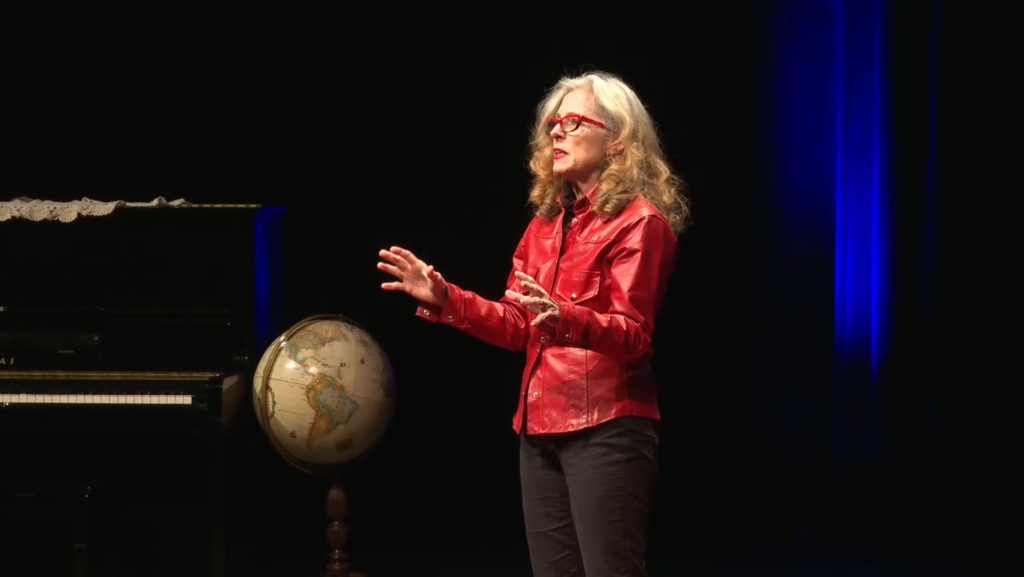
On March 8, Dene Grigar participated in the TedxTalk at Marshall University. The talk, entitled “Making the Virtual Real and the Real Virtual,” focused on the Virtual Reality implementation in the Viz space at The NEXT, a project partially funded by a 2024 WSU Vancouver Research Mini-Grant. Joining her on stage was Andrew Thompson, the […]
The Future of Text in XR Symposium
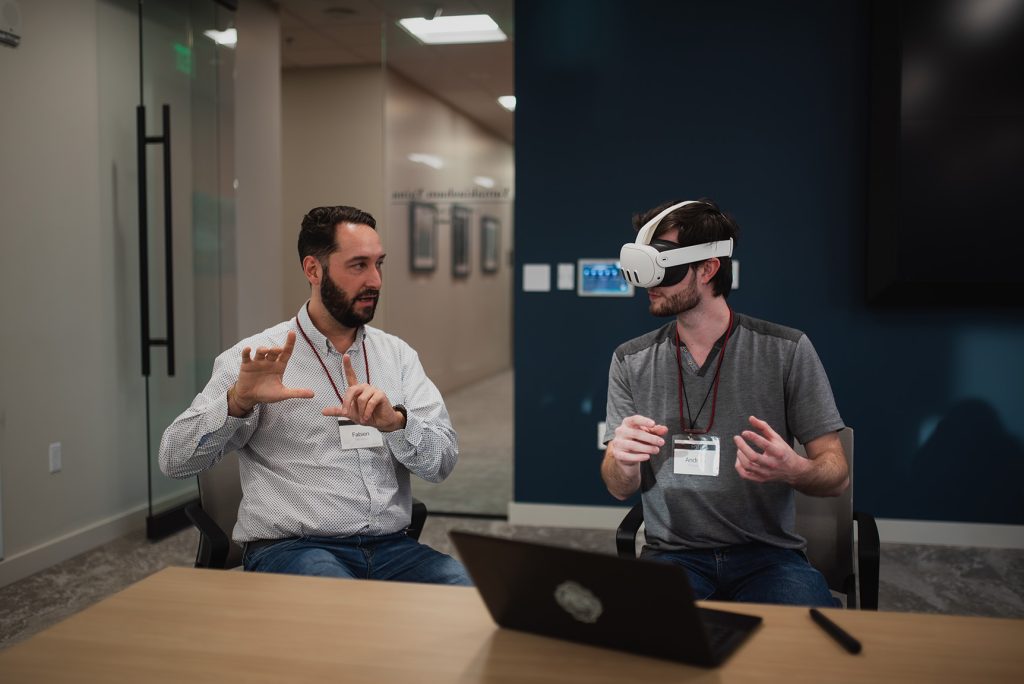
On Saturday, November 23, 2024, Dene Grigar and Frode Hegland (University of Southampton) co-hosted The Future of Text in XR Symposium (https://thefutureoftext.org/symposium/) at the Murdock Building in downtown Vancouver, WA. Joining us were 46 in-person and 14 online participants from the U.S., UK, Belgium, Demark, and Italy. The event was funded by the Alfred P. […]
